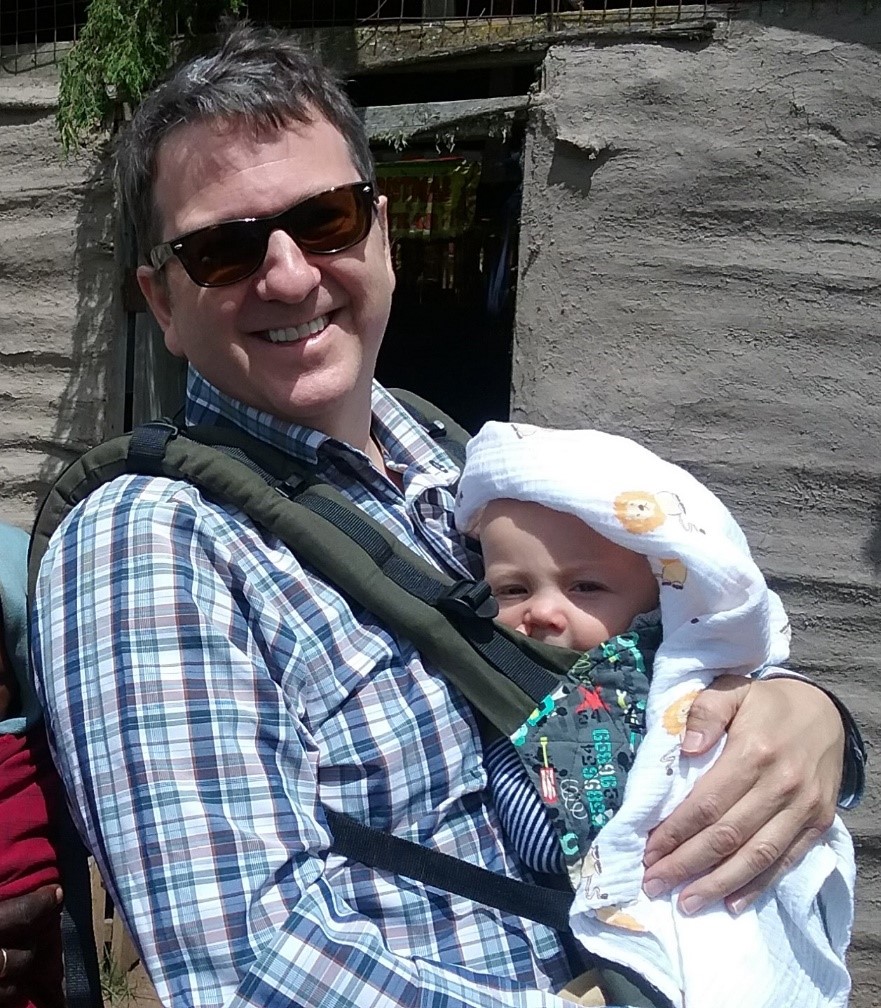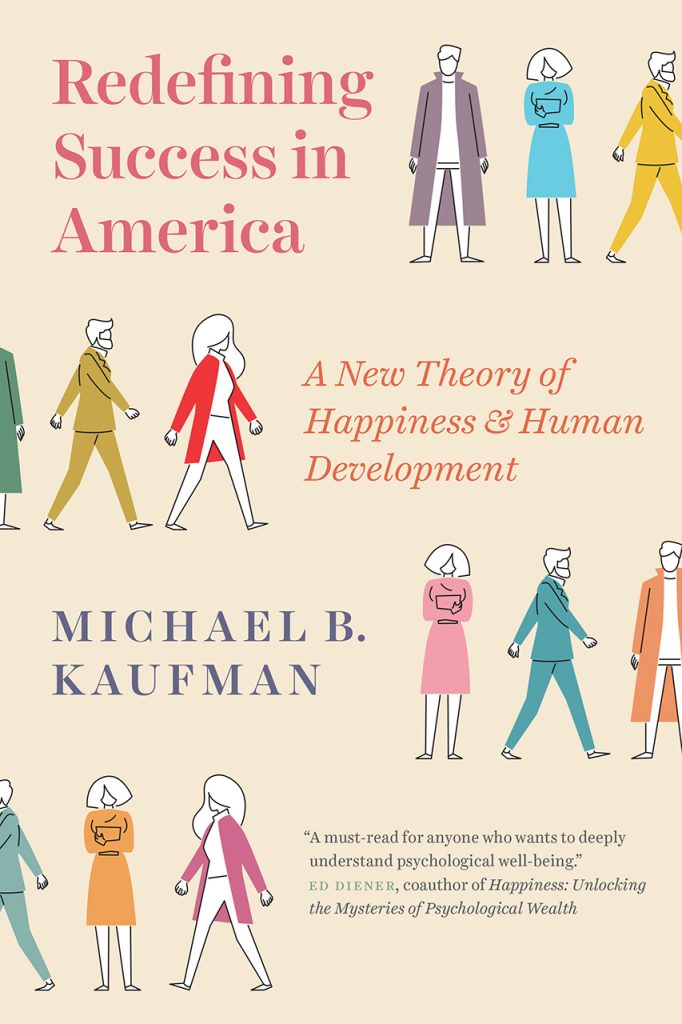Read an Excerpt from “Redefining Success in America: A New Theory of Happiness and Human Development”
In recent months, the news has been filled with the ongoing fallout of a college admissions scandal in which dozens of wealthy parents—including Hollywood stars—stand accused of bribing their children’s way into elite undergraduate institutions, presumably in a bid to guarantee them long-term success. But while the salacious combination of celebrity, money, and crime has consumed our attention, we’ve ignored some important central questions: Are the beliefs that motivated the purported crimes based in reality? Do an elite education and a successful career really guarantee a fulfilled, happy life?
In his timely new book, interdisciplinary psychologist Michael B. Kaufman shows us that the answer is an emphatic “No.” Returning to the legendary Harvard Student Study of undergraduates from the 1960s and interviewing participants almost fifty years later, Kaufman reveals that formative experiences in family, school, and community largely shape a future adult’s worldview and well-being by late adolescence, and that fundamental change in adulthood, when it occurs, is shaped by adult family experiences, not by ever-greater competitive success.
As the Harvard Class of 1964 at the heart of the study celebrates fifty-five years since graduation, and as controversy continues to swirl over college admissions and the long-term value of an elite undergraduate education, read on for an excerpt from the preface of Kaufman’s Redefining Success in America: A New Theory of Happiness and Human Development.
It was July 2000 when I first encountered the people whose lives would change mine. I sat in the secure reading room at the Henry A. Murray Research Center at Harvard, one of the leading archives in the country for longitudinal research in the field of human development. It houses seminal studies conducted in the twentieth and twenty-first centuries that have shaped our basic knowledge about how people behave, think, and feel as they traverse the course of life. I was on an exploratory visit looking for a baseline data set that I might use in a follow-up study of how the most successful members of our society experience their lives, particularly their well-being. I wanted to know whether going to the best schools and having the most recognized and remunerated careers delivered the prize widely believed in America to result, namely, a good life. I needed longitudinal perspective to know whether competitive success results in a core feature of its promise: a significantly changed emotional experience.
A dumbwaiter raised from the temperature-controlled basement three archival boxes of folders labeled “King and McArthur” (McArthur & King, 1992). I opened the lid to one of the boxes and pulled out a file stamped with a four-digit participant ID. Fingering its pages with care, I was carried back to the early 1960s and the life of William Young as a freshman at Harvard College.
Young came from a rural part of the country, his family was poor, his father was a tradesman, and William had graduated near the top of his high school class. Making it to Harvard was not merely an achievement; it also served as an escape from his father’s explosive tantrums, suggestive of mental illness, and his family’s stifling Christian rigidity. A gifted artist and an accomplished intellectual, Young seemed determined to make his mark in the world as an artist, though he also betrayed deep concern about the prospect of failure. As I skimmed, Young struck me as a Horatio Alger story in the making with a complex psychology. William Young’s file, by the time of his graduation, was several inches thick and contained 493 pages of verbatim transcription of 20 in-person interviews and test sessions from the time he was seventeen until he was twenty-one. Young was in his late fifties as I was skimming his file.
It took me only a few moments to realize that Young’s file and the files of forty-eight other Harvard undergraduates much like it—packed with manually typed, crisp pages full of correction marks and faded-ribbon ink—constituted rare gems, only a few of their kind likely to exist anywhere in the world. Here before me was a record of a living man’s psychological past, more extensive and revealing than any I had encountered in the field of human development. Young and his classmates who had been exhaustively studied as undergraduates were now approaching sixty years old, their retirements, and the transition out of the middle adult period of life. As this central period of their adult lives was coming to a close, I wondered how things looked on the other side. The jury on their lives as successful competitors in the US world of education and careers would now largely be in. Did they still have the same goals? Had they changed as people? How did they feel about the way things had turned out?
I wondered: Had William Young realized his ambitions as an artist? Was his father still living and had their relationship changed? Did he have a family? Curiosity overtook me. I wanted to meet him.
And so it was that the fifteen-year investigation reported in this book was launched. I tracked down William Young, flew to his city, and spent more than ten hours with him during four interviews discussing his life. Forty other participants also granted me in-person interviews of similar depth and intensity. In all, I traveled to twenty-five cities in the United States to meet these men and find out how their lives had turned out. Along the way, I would serendipitously gain access to—and follow up—207 participants in a larger paper-and-pencil study from which Young and his classmates had been selected for intensive interviewing. This effort would result in a longitudinal study of human development spanning almost half a century.
I don’t think it would have deterred me at the time to know the vast time, devotion, and resources required to complete the undertaking. I was propelled by central questions that had arisen in my own life, which cut to the heart of fundamental American beliefs. I was in my thirties and was unclear why I was pursuing the competitive strivings at the heart of my career. I had gone from Amherst College to investment banking to high-tech start-ups and had also earned an MBA at Harvard. I made the decision to change course, first training as a clinician and then entering the academy, in pursuit of answers. The men whose lives I encountered at the Murray Center resonated with me and at the same time stood for something much larger. A generation older, many seemed propelled by strivings similar to those driving my own educational and professional trajectory. Graduates of an elite university and members of an elite professional class, these men were icons of an American ideal. I knew that their experiences in the competitive journey, now largely played out, had the potential to unravel a central unanswered question: Does the pursuit and realization of competitive success deliver on its promise of a good life? The question in my life was no less about a fundamental belief in America.
Most people assume that the social and economic opportunities afforded by competitive success translate into clear psychological benefits. In fact, a surprising number of people do not even consider the two notions separate; for them, competitive success is the equivalent of the psychological experience of well-being. For others, who perceive a cause-and-effect relationship, psychological benefits are seen to accrue from advantages in rearing and educating children, getting good health care, and pursuing rewarding work. Competitive success also affords pleasure and ease from material conveniences and luxuries such as comfortable homes, vacations, and transportation. And it often confers dignity, pride, and self-respect from realizing the American Dream.
But do these benefits translate into psychological benefits? What are the costs of competitive success, and what effect do they have? Is careerism in fact an American scourge, robbing people of their spirit and reducing opportunities: for relationships, creativity, self-expression, and self-realization? Might the endless anxiety of the pursuit define the experience, outweighing the benefits?
Men like my research participants devote decades of their lives to pursuing professional success. It is a deeply organizing commitment over the course of adulthood whose roots begin well before adulthood. These men, and women like them, are adherents of an intensifying form of American individualism. More now than when my participants grew up in the 1940s and 1950s, getting into a competitive college is seen as a necessary stepping-stone to professional success. Getting a son or daughter past the looming college admissions choke hold is treated by many parents as a critical race whose outcome will determine the professional and general success and well-being of the future adult.
No small number of parents are already concerned about their child’s future admission to a selective college well before the child enters school. It is not uncommon for kindergarten to be seen, especially in competitive urban centers, as a gateway to adult privilege. By the time high school hits, the frenzy of the race is in full swing.
Competition for admission to Harvard began to intensify almost a decade before my research participants matriculated. Other competitive institutions have, of course, moved in parallel. The U.S. News & World Report rankings of colleges and universities, established in the 1980s, have come to embody competitive success as a kind of tyrannical force drawing both colleges and universities and aspiring students into its orbit. Whether graduate or aspirant—or parent, partner, child, or sibling of graduate or aspirant—most of us will readily recognize the pressures of keeping up or getting ahead as our own.
It would seem imperative to know whether winning the competitive game translates into winning in the game of life, where happiness is the outcome and the stakes of succeeding could not be higher. Do the prizewinners’ advantages translate into a better life? If so, does someone need to go to a selective undergraduate institution, excel in a competitive professional career, and be worth at least millions to be fully happy?
If we don’t obtain a resounding answer in the affirmative that this quintessentially American credo of competitive success delivers on its promise, the revelation has the potential to open up a tremendous fault line in a foundation of American life.
Redefining Success in America is available now! Find it on our website, online at any major booksellers, or at your local bookstore.

Michael B. Kaufman is an interdisciplinary psychologist who was director of the Harvard Student Study for fifteen years at the University of Chicago in the Department of Comparative Human Development and the Center on Aging. Currently a Fulbright Scholar in Tanzania carrying out cross-cultural research in human development, he is visiting professor of psychiatry and behavioral sciences at Tumaini University Makumira as well as a senior research scientist at the Kilimanjaro Clinical Research Institute. Kaufman also holds an MBA from Harvard Business School.
